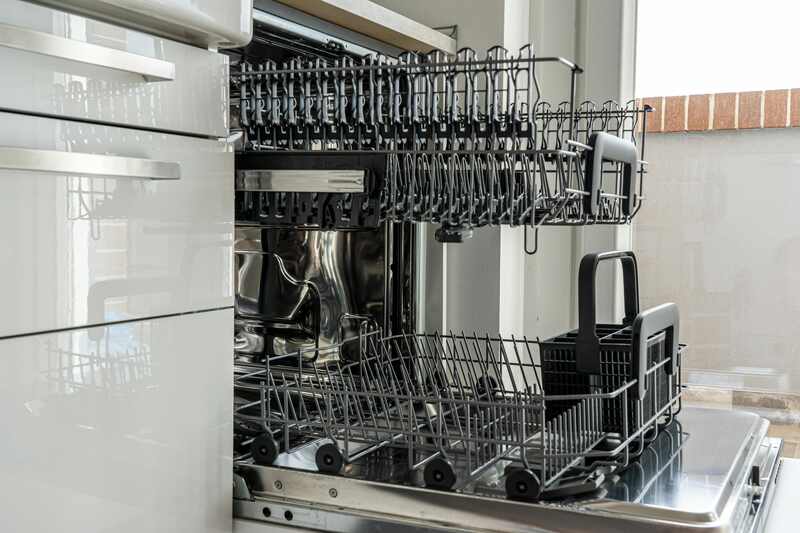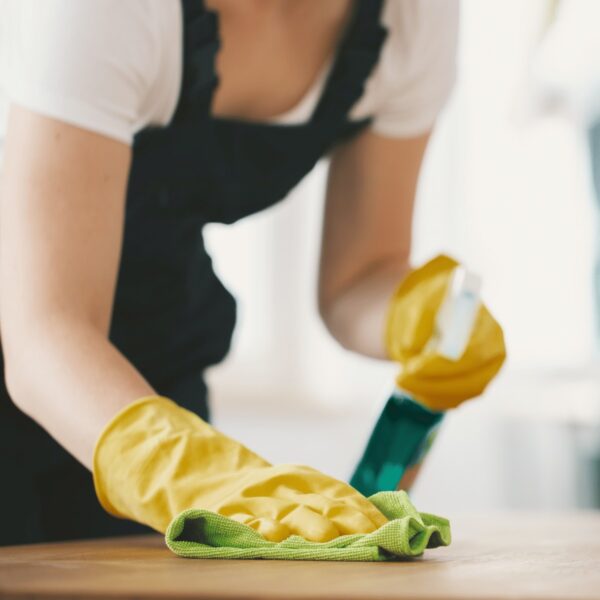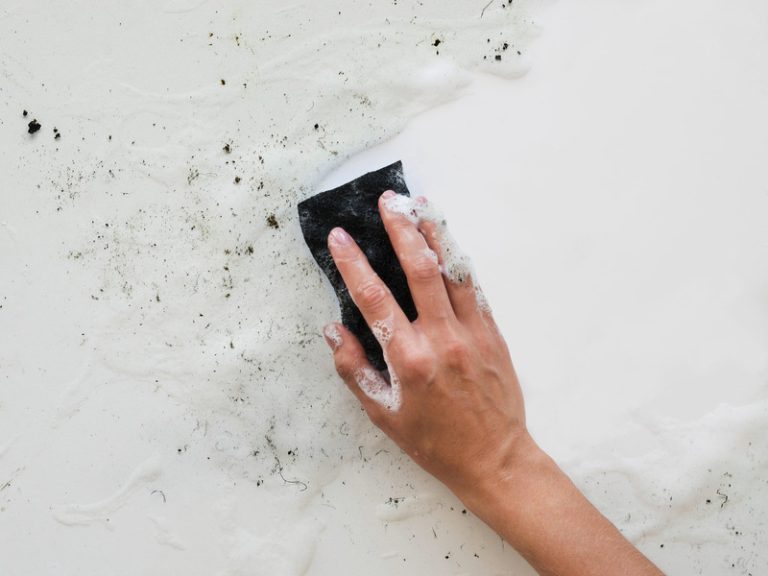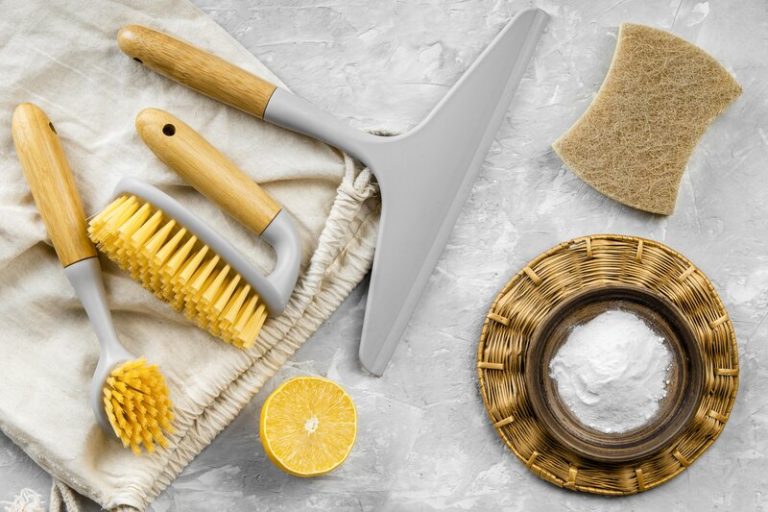To keep your kitchen running smoothly, it’s vital to know how to clean dishwasher effectively. This crucial maintenance task ensures that your appliance continues to perform at its best and your dishes come out spotless.
Over time, dishwashers can collect food particles, grease, and grime, leading to unpleasant smells and reduced efficiency.Our guide delves into why regular cleaning is important and provides a straightforward, step-by-step approach to tackling this chore.
Whether you prefer DIY methods or considering professional services, we cover the essentials to help you maintain a fresh and functional dishwasher. Plus, discover tips for routine upkeep to extend the life of your appliance. Ensure your dishwasher stays in peak condition and your kitchen remains hygienic!
Why Should You Clean Your Dishwasher?
There are several reasons why cleaning your dishwasher is so important, among them are to:
a. Prevents the Buildup of Food Particles and Grease
To keep your dishwasher performing at its best, regularly clean food particles and grease that build up in the filter and spray arms. Food residues can cause odours and blockages, leading to inefficient cleaning. Removing and rinsing the filter, and unclogging spray arms, along with using a monthly dishwasher cleaner, helps maintain efficiency. Understanding how to clean your dishwasher helps prevent these issues.
b. Removes Odours and Bacteria
Effective dishwasher cleaning eliminates odours and bacteria, promoting a more hygienic environment for your dishes. Use vinegar and baking soda to neutralise smells and disinfect the appliance. Placing vinegar in a bowl on the top shelf and running a hot cycle, followed by baking soda, ensures a fresh and clean dishwasher. Proper cleaning methods are key to answering how to clean your dishwasher and keep it odour-free.
c. Maintains Efficient Performance
Regular dishwasher cleaning is essential for maintaining efficient performance. A clean appliance prevents debris build-up, ensures proper water circulation, and avoids wasted water and energy. To keep your dishwasher in top condition, clean the filter, run a monthly cleaning cycle with vinegar or a cleaner, and inspect the spray arms. These practices help in knowing how to clean your dishwasher for optimal results.
DIY vs Professional Cleaning: Which is Better?
When choosing between DIY and professional cleaning for your dishwasher, consider the benefits of each. Here’s the full explanation.
a. Cost Comparison
DIY cleaning for your dishwasher is cost-effective, involving minimal expenses for supplies like vinegar and baking soda, typically costing between £8 to £24. In contrast, professional services can be more expensive, starting around £80. Deciding whether to invest in a DIY approach or pay for professional help depends on your budget and the convenience you seek.
b. Time and Effort
Deciding between DIY and professional dishwasher cleaning involves evaluating time and effort. DIY methods require gathering supplies, learning techniques, and manual cleaning, which can be time-consuming. Conversely, professional services offer thorough cleaning without the hassle, saving you time and ensuring expert results. Balancing convenience with thoroughness is key in choosing the best method for your needs.
c. Effectiveness and Quality of Cleaning
The effectiveness of dishwasher cleaning can differ between DIY and professional methods. DIY approaches, like using vinegar and baking soda, offer a natural option but may not match the thoroughness of professional cleaning. Professionals use specialised products that tackle stubborn stains and odours, providing a higher quality clean. Knowing how to clean your dishwasher effectively helps you decide which method best suits your needs.
Step-by-Step Guide to Cleaning Your Dishwasher
Cleaning your dishwasher may seem daunting, but with a step-by-step guide, you can effectively tackle this task and keep your appliance running smoothly. This comprehensive approach will cover everything from:
a. Gather Supplies
To clean your dishwasher effectively, start by gathering key supplies such as white vinegar, baking soda, microfibre cloths, a toothbrush, and washing-up liquid. White vinegar helps break down mineral deposits and grease, while baking soda deodorises and scrubs away stubborn stains.
Microfibre cloths are ideal for wiping surfaces without leaving streaks, and a toothbrush or small scrub brush is perfect for reaching tight spots. Having these items on hand will make the process smoother and ensure you achieve a sparkling clean appliance. Knowing how to clean your dishwasher with these tools is crucial for maintaining its performance and longevity.
b. Clean the Exterior of the Dishwasher
Begin by cleaning the exterior of your dishwasher to remove dirt and fingerprints. Use a damp cloth and a mixture of warm water with mild washing-up liquid or a dedicated dishwasher cleaner. Pay extra attention to the handle and control panel where grease tends to accumulate.
For stainless steel finishes, a specialised stainless steel cleaner can help maintain a shiny appearance and prevent streaks. After cleaning, use a microfibre cloth to buff the surface and dry it immediately to avoid water spots. Regular exterior maintenance not only keeps your dishwasher looking fresh but also prevents grime build-up.
c. Remove and Clean the Filter
Cleaning the filter is a critical step for maintaining your dishwasher’s efficiency. Located at the bottom basin, the filter traps food particles that can cause unpleasant odours and affect washing performance.
To clean it, remove the filter by twisting or unscrewing it, then rinse it under warm water to remove food debris. Use a soft brush to scrub away any stubborn residues if necessary. After cleaning, reinstall the filter securely. Regular attention to this component ensures optimal performance and prevents issues with drainage and cleaning results.
d. Clean the Spray Arms
Spray arms are essential for distributing water evenly throughout the dishwasher. To clean them, first remove the spray arms by unscrewing or lifting them off. Rinse them under hot water to dislodge any food particles. If blockages persist, use a toothpick or fine brush to clear debris from the spray holes.
Once cleaned, reassemble the spray arms and run a short cycle to verify that they rotate freely and water flows unobstructedly. Regular cleaning of the spray arms is vital for maintaining effective water distribution and achieving clean dishes.
e. Run a Cleaning Cycle with Vinegar
To give your dishwasher a deep clean, run a cycle with white vinegar. Empty the dishwasher and place a cup of vinegar on the top rack. Select the hot water cycle and start the machine. The vinegar will help dissolve grease and mineral deposits, neutralising odours and leaving the appliance fresh.
For an extra boost, consider sprinkling baking soda on the bottom of the dishwasher after the vinegar cycle and running a short hot cycle. Regularly using this method ensures that your dishwasher remains hygienic and performs efficiently.
f. Wipe Down the Interior
After completing the vinegar cycle, wipe down the interior of your dishwasher to remove any remaining residue. Use a soft, damp cloth and, if necessary, a gentle cleaning solution to tackle stubborn spots.
Pay attention to the walls, bottom, and any removable parts like the cutlery basket and spray arms. Ensure that any moisture evaporates before placing items back inside. Regular interior wiping enhances cleanliness and performance, preventing the build-up of grime and extending the lifespan of your appliance.
g. Clean the Door Seal
The door seal is an often-overlooked area that can affect your dishwasher’s performance. Clean it regularly to prevent grime and mould build-up, which can lead to leaks.
Use warm soapy water, a soft cloth, and a toothbrush for tough spots. Inspect the seal for visible residue, clean it gently, and ensure it is completely dry before closing the door. Maintaining the door seal is essential for preventing leaks and ensuring a proper seal during washing cycles.
h. Run a Final Rinse Cycle
To complete the cleaning process, run a final hot water rinse cycle. This step helps flush away any remaining cleaning agents and debris, ensuring that your dishwasher is fully clean and ready for the next use. The hot water aids in breaking down stubborn residues and enhances the appliance’s efficiency.
Regularly incorporating this final rinse into your maintenance routine helps improve sanitation and prolong the dishwasher’s lifespan, ensuring that each wash leaves your dishes sparkling clean.
Tips for Maintaining a Clean Dishwasher
To keep your dishwasher in optimal condition, it’s important to implement:
a. Rinse Dishes Before Loading
Rinsing dishes before loading them into the dishwasher helps prevent food debris from clogging the appliance and affecting its efficiency. This simple step ensures the dishwasher operates effectively and dishes come out sparkling clean. Regularly rinsing dishes also extends the appliance’s lifespan and keeps your kitchen more hygienic. Knowing how to clean dishwasher parts effectively starts with this basic routine.
b. Use Dishwasher Cleaner Regularly
Using a dishwasher cleaner regularly is crucial for removing build-up and unpleasant odours. These cleaners tackle tough stains and limescale, enhancing the dishwasher’s performance and longevity. Regular use ensures a fresh-smelling, efficient appliance, contributing to a cleaner kitchen. Understanding how to clean dishwasher interiors with these products maximises efficiency and hygiene.
c. Check and Clean the Drain Regularly
Regularly checking and cleaning the dishwasher drain prevents clogs and maintains optimal performance. Remove the bottom rack to access and clean the drain, using a soft brush or cloth to clear debris. Running hot water with vinegar through the system can help keep the drain clear. Proper drain maintenance is key to effective washing and appliance longevity.
To wrap up, understanding how to clean dishwasher is crucial for maintaining the efficiency of your kitchen and ensuring spotless dishes. Regular upkeep prevents unpleasant smells, clogged drains, and inefficiencies, making it an essential part of household maintenance.
But, why struggle with the hassle of DIY cleaning when TEKA Cleaning can handle it all for you? Our comprehensive residential cleaning services include expert dishwasher cleaning, ensuring your appliance performs at its best without the mess or stress. Our trained professionals use top-notch equipment and techniques to guarantee a thorough job.
Don’t wait for minor issues to escalate—contact TEKA Cleaning today at 01223 751 544 and let us take care of the details. With our services, your kitchen will stay fresh, your dishwasher will run smoothly, and you can enjoy a pristine home effortlessly.
Read also:











